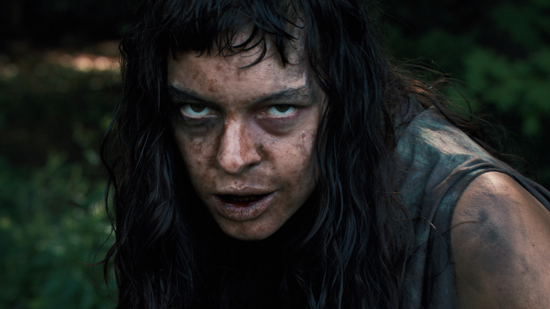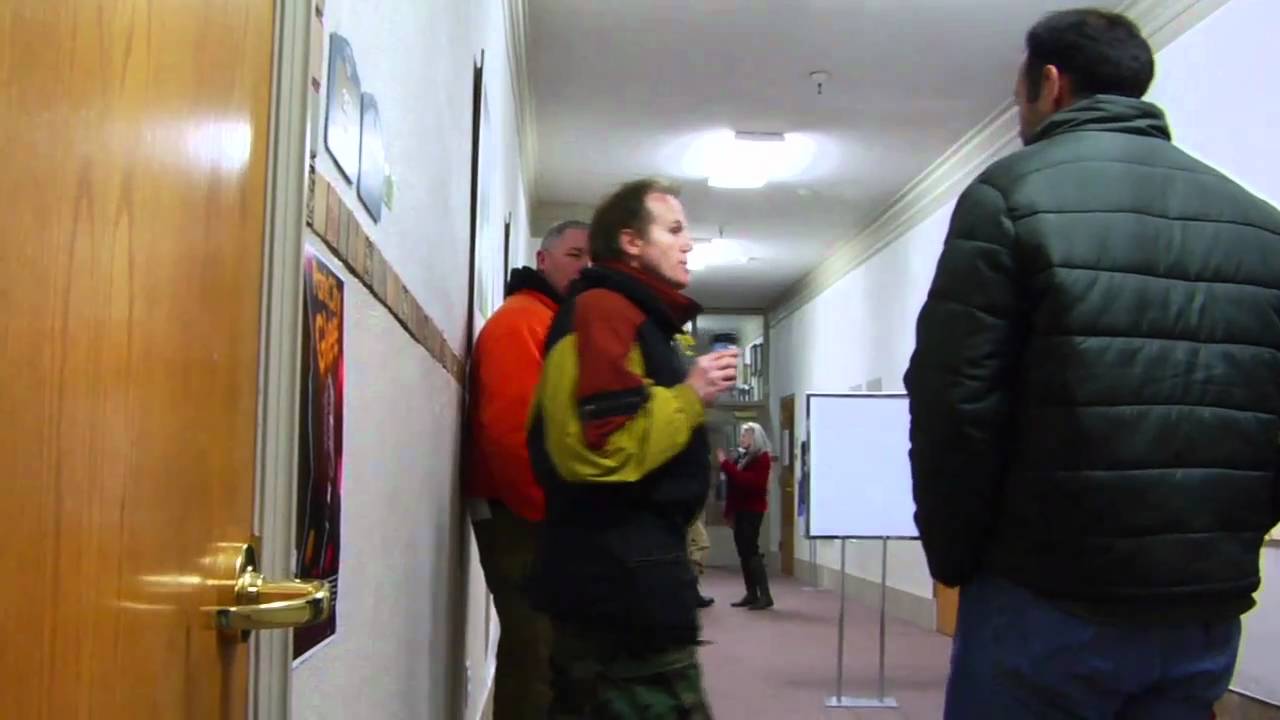Staggering into frame, clutching a bleeding wound, feral, almost pre-civilisation, a woman stumbles through a forest. Elsewhere, a family man and upstanding member of the community enjoys a beer while surveying the women of his household. His son is off in the distance, watching some other boys push a younger girl around. This is our first introduction to Lucky McKee’s film The Woman.
Though not explicitly stated, The Woman is a sequel to producer Andrew van den Houten’s last directorial outing, The Offspring. A smaller work in many ways, it tells the tale of a colony of feral cannibals, hiding away in the woodlands of coastal Maine. Both are penned by Jack Ketchum, with Pollyanna McIntosh reprising her role from the previous film.
The movie hit this year’s Sundance Festival with a bang, when at its premiere, one woman’s fainting spell sparked another member of the audience to explode in an outburst of disgust. The resulting tirade was caught on camera and eventually went viral on YouTube. Controversy like this will always whet the
appetite of FrightFest fans; and as such The Woman was one of the most anticipated screenings of the 2011 festival, alongside Ti West’s Innkeepers and British director Ben Wheatley’s powerhouse Kill List.
But McKee is well-acquainted with critical acclaim as well as controversy. His 2002 debut May was one of the underground hits of the past decade and he has proved once again with his new feature that he’s a force to be reckoned with. The Woman is an entrancing film, sucking you in from the offset as McIntosh staggers filthy and bleeding through the woods, counterbalanced by Sean Bridgers’ clean cut portrayal of Chris, the iron-fisted patriarch. Spying ‘the woman’ through his rifle sight, Chris’ eyes light up and in an instant, he knows exactly what he is going to do – this female must be civilised, must become his. Upon his return home, he requests that his family clean up the cellar; dutifully, they comply.
Many have complained that The Woman is misogynistic, that all the characters are equally responsible for the crimes committed by the father. But McKee does not allow the women subjugated under Chris’ rule an out; rather, they hand him the board with which to beat his prey. The few times his wife steps out of line, she is swiftly reminded that this is not her role – hers is silent obedience. Played to perfection by Angela Bettis, the wife Belle is timid, knowing and trapped. Her disgust at the situation she has found herself in flashes across her face as she rolls Chris’s cigarettes. She is a broken woman; this is her lot in life. She lost her fight a long time ago and to fight back now would mean she would lose something precious. Love for her family keeps her by her husband’s side.
Impending doom pervades every scene, as we are hypnotised with slow-moving shots. The confidence and patience of The Woman is partly what makes it so intensely disturbing. There is no rush, because there is nothing that can be done to change things: Chris is in charge of everything and we move at his pace alone. For the most part, everyone is the same at the film’s climax as they were at the beginning, only with a few less heartbeats. There is no learning to be done here, this is simply the way their life is. Horrid, brutal, but on the surface perfectly civilized.
McKee’s examination of domestic abuse is shocking and harsh; certainly upsetting (as evinced by the woman fainting at Sundance), but again, the family portrayed here are far from out of the ordinary. Children can find themselves trapped with no realistic escape routes, until they too have taken on the traits of the father. No one really knows what goes on behind closed doors, there could very easily be a Chris next door to you (albeit probably not with a woman chained in his basement).
To react to The Woman with anger and outrage is to react to humanity with anger and outrage. Nothing in the film’s 100 minutes, save for ‘the woman’ herself, is a figment of the imagination or unrealistic; to such an extent that McIntosh’s character is merely a hook to hang the story on, a MacGuffin (a fascinating, well-acted and terrifying MacGuffin) but peripheral nonetheless. The real terror in The Woman is the kind of violence and psychological torture that is so prevalent in our modern society that it’s almost banal, until confronted in this way.
The Woman sees its UK theatrical release at the end of September in select cinemas and in London at the <a href="http://princecharlescinema.com/indexreview.php?display=1813"
target="out">Prince Charles Cinema:
Fri 30th Sept 18:15
Sat 1st Oct 23:10
Tue 4th Oct 13:00
Thu 6th Oct 18:30



